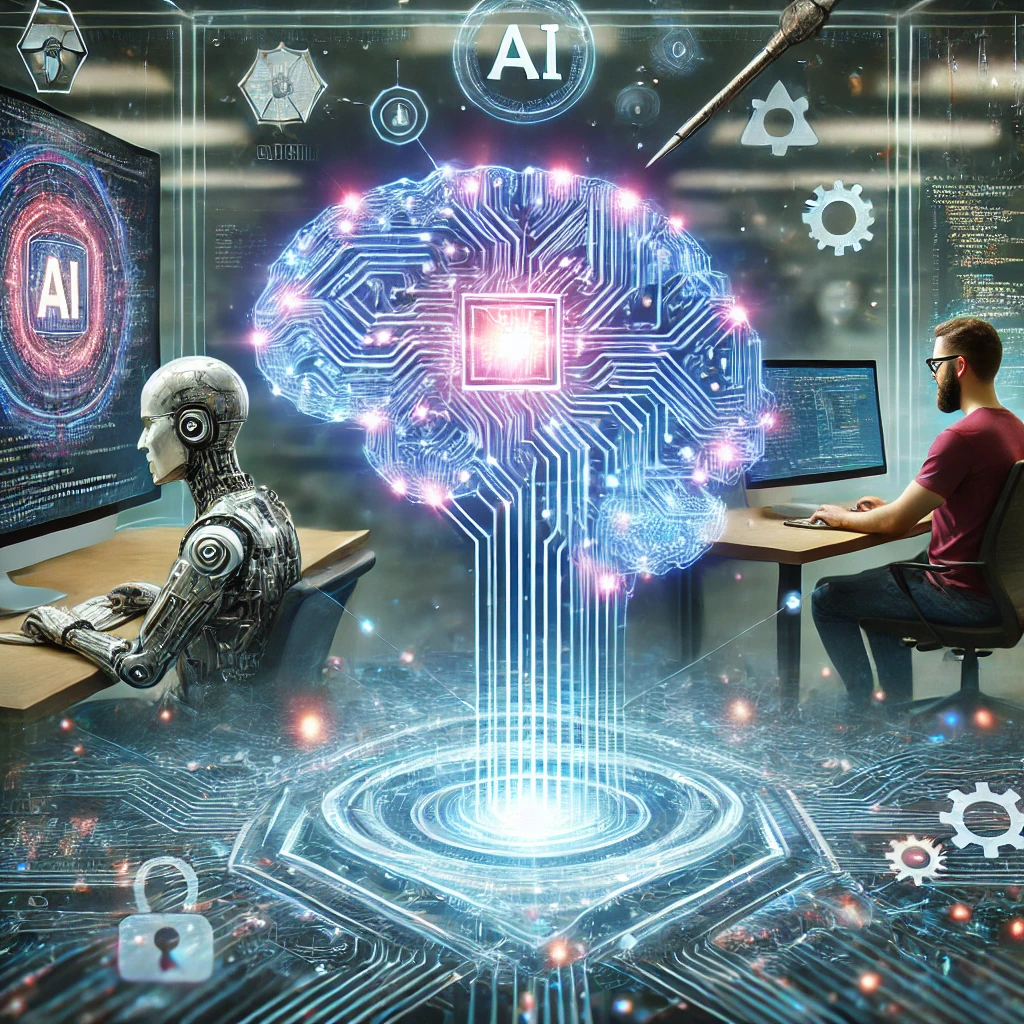
Introduction
Artificial Intelligence (AI) is revolutionizing the software industry, making development faster, more efficient, and more intelligent. From automating coding tasks to enhancing cybersecurity, AI is becoming an essential component of modern software solutions.
1. AI-Driven Software Development
AI is transforming software development by automating tedious coding tasks and improving debugging. AI-powered tools like GitHub Copilot and OpenAI Codex assist developers by suggesting code, reducing errors, and accelerating the development process.
2. Enhanced Software Testing and Quality Assurance
Traditional software testing is time-consuming and prone to human error. AI automates test case generation, detects potential bugs before deployment, and ensures better software quality with minimal manual intervention.
3. AI in Project Management and DevOps
AI-driven project management tools help teams streamline workflows, predict project timelines, and allocate resources efficiently. In DevOps, AI enhances CI/CD pipelines, enabling seamless software deployments with minimal risk.
4. Natural Language Processing (NLP) in Software Applications
NLP enables AI-driven chatbots and virtual assistants to improve customer interactions. AI-powered customer support solutions provide instant, accurate responses, reducing wait times and improving user satisfaction.
5. Machine Learning Algorithms for Personalization
AI enhances user experiences through personalized recommendations. From Netflix’s content suggestions to e-commerce product recommendations, AI tailors user interactions for better engagement.
6. Cybersecurity and AI-Based Threat Detection
AI helps identify security vulnerabilities and detect cyber threats in real time. AI-driven security solutions analyze patterns, detect anomalies, and respond to potential breaches before they occur.
7. AI-Powered Data Analytics and Decision Making
AI processes vast amounts of data to provide actionable insights. Businesses leverage AI-driven analytics for better decision-making, predictive analysis, and trend forecasting.
8. AI in Cloud Computing and Infrastructure Management
AI optimizes cloud resource management by predicting usage patterns and automating scaling. Smart AI-driven IT operations ensure high availability and cost efficiency.
9. Low-Code and No-Code Development Platforms
AI enables the rise of low-code and no-code platforms, allowing non-technical users to create applications. This democratization of software development speeds up innovation and reduces development costs.
10. AI and Edge Computing in Software Solutions
AI at the edge enhances real-time data processing capabilities. It enables AI-powered applications to operate efficiently on devices with limited connectivity, improving responsiveness and performance.
11. The Future of AI in Software Development
AI’s role in software development will continue to expand, raising ethical concerns such as data privacy and bias in algorithms. Addressing these challenges will be crucial for sustainable AI adoption.
Conclusion
AI is transforming the software industry by automating tasks, improving security, and enhancing user experiences. Staying updated with AI advancements is crucial for developers and businesses to remain competitive.